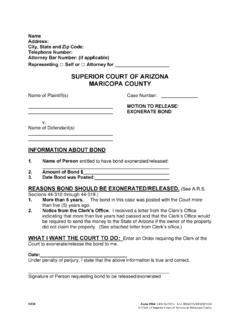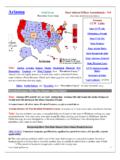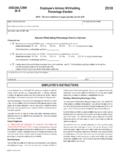Transcription of A Case Study of Psychiatric Medication …
1 A Case Study of Psychiatric Medication NoncompliancePeggy Sotiropoulos Katherine Poetter Linda Napholz, RN, University of Wisconsin, Milwaukee Abstract This article highlights the issue of Medication noncompliance as it relates to Psychiatric re-hospitalization. The concept of Medication noncompliance by Psychiatric patients is examined, and interventions are described that are likely to promote compliance. The cycle of noncompliance and re-hospitalization is then described through a case Study of an individual who is resistant to a Medication treatment regime. Introduction Medication noncompliance is thought to be a major factor in Psychiatric hospitalizations. Many individuals with Psychiatric disorders are hospitalized for an exacerbation of their mental illness, stabilized with medications, and then discharged home.
2 At home, a large number fail to take their medications properly, if at all. Relapse often occurs and re-hospitalization follows (Crane, Kirby, & Kooperman, 1996). Therefore, patient noncompliance is an important issue due to its consistent association with severe ratings of psychopathology (Fenton, Blyer, & Heinssen, 1997). Medication noncompliance can be intentional or unintentional. Some underlying factors for unintentional noncompliance include complex Medication regimes, an inability to pay for medications, forgetfulness, and/or failure to understand instructions due to auditory, visual, psychological, or intellectual impairments. According to Lehne, Moore, Crosby, and Hamilton (1994), 70% of noncompliance cases are intentional.
3 In fact, it is the opinion of the authors that the patient s belief that the drug is not needed in the actual prescribed dosage is the primary reason for intentional noncompliance. In addition, unpleasant Medication side effects, as well as the patient s denial of the severity or presence of the mental illness contribute to Medication noncompliance (Crane et al, 1996). Lehne et al (1994) and Napholz (personal communication, January 14, 1997) suggest a number of interventions that can promote compliance among patients with a Psychiatric illness. These include: 1. Insuring that the Medication is actually swallowed and not "cheeked" or vomited. 2. Encouraging family members to oversee Medication administration.
4 3. Providing patients with written and verbal instructions on dosage and timing. 4. Informing patients and families that psychotropic medications need to be taken on a regular schedule to be effective. 5. Informing patients about side effects of treatment and teaching them how to minimize undesired responses. 6. Assuring patients that psychotropic medications, such as antidepressants, antipsychotics, and mood stabilizers do not cause addiction. 7. Establishing a therapeutic relationship with the patient and with family and/or significant others who are sources of support to the patient. 8. Using a depot preparation for long-term therapy or for patients that do not take their Medication correctly or are forgetful.
5 Patient education is clearly the favored way to promote compliance among mentally ill individuals (Falvo, 1985). According to Falvo, patient education can be a key component in enabling patients to accurately follow the recommendations of the health professional. Patients cannot follow treatments and recommendations if they do not understand or accept them. Patient education also has been identified as an important preventive intervention to help break the cycle of multiple Psychiatric re-hospitalizations (Haywood, Howard, Kravitz, Grossman, Cavanaugh, Davis, & Lewis, 1995). The American Nurses Association established the Standards of Psychiatric and Mental Health Nursing Practice in 1982, which states that Psychiatric patients have the right to be informed about the specifics of psychotropic medications.
6 These standards list patient teaching as a responsibility of Psychiatric mental health nurses. Through education, the Psychiatric mental health nurse can help empower patients by enabling them make informed decisions and take a more active role in their treatment. Effective communication creates an active partnership between the Psychiatric mental health nurse and the patient that facilitates the education process. When the patient understands the symptoms and severity of the illness and the nurse provides timely feedback and clear, explicit instructions, the patient is more likely to assume increased responsibility for self-care, which can increase the likelihood of compliance with the Medication regime (Crane et al, 1996).
7 In the case of Psychiatric patients, successful interventions aimed at Medication compliance can result in "less time spent in hospitals, improved functioning in the community, greater family stability, and more satisfying and independent lives" (Crane et al, 1996, p. 8). The Medication Noncompliance-Readmission Cycle Medication noncompliance is a common factor leading to admission or readmission to mental hospitals. Often, Medication noncompliance initiates a cycle that begins with an emergency detention. Law enforcement personnel bring a person to the Psychiatric Emergency Department. Often mechanical or chemical restraints are indicated to manage acting out behavior. From that point, the person may be admitted for inpatient treatment, outpatient treatment, or released.
8 If a person is admitted, a court hearing follows within 72 hours. The person, now a patient, may remain Medication non-compliant during his or her stay, or compliance may be achieved through nursing staff interventions. Discharge planning includes a plan of care developed by the treatment team that will follow the patient after discharge. Unfortunately, it is not uncommon for a patient to discontinue taking his or her Medication post-discharge and to not follow the treatment plan, leading to readmission. Nursing Responsibilities in Medication Noncompliance The Psychiatric mental health nurse has a responsibility to assess the patient for motivating factors as well as potential barriers to compliance.
9 Motivation is associated with "beliefs and values held by the patient about the outcome to be achieved, the patient s intentions, and the patient s perceived ability to initiate and maintain behavioral change" (Lubkin, 1992, P. 223). Motivation-related aspects that need to be assessed and considered are: "What does the prescribed health behavior change mean to the patient? What environmental factors may interfere with the new behavior? What future events may challenge the patient s motivation? How will personal values affect the patient s ability to remain motivated?" (Carpenito, 1995 p. 604). Assessing patients knowledge of their illness and Medication regimen includes: determining their understanding of their symptoms, evaluating their knowledge of the psychopharmacologic agents prescribed, assessing their motivation for obtaining symptom relief, and exploring their understanding of how the Medication helps control their symptoms (Crane et al, 1996).
10 Evaluating patients beliefs, attitudes, strengths, and weaknesses can help the nurse identify other potential barriers to Medication compliance, as well as learning needs. Psychiatric mental health nurse also need to assess their own beliefs to make sure that their attitudes and beliefs are not negatively affecting the patient s Medication compliance. For example, if the nurse enjoys the dependency of the patient and subconsciously does not want the patient to outgrow his or her need for the nurse, the relationship will not be therapeutic. Compliance with a Medication regimen involves a behavioral change on the part of the patient. Compliance and behavior change are positively influenced by the patients usual patterns of compliance, family influence and stability, the patients perceptions of their own susceptibility to the disease, their perceptions that the disease is serious, and the efficacy of treatment (Carpenito, 1995).







